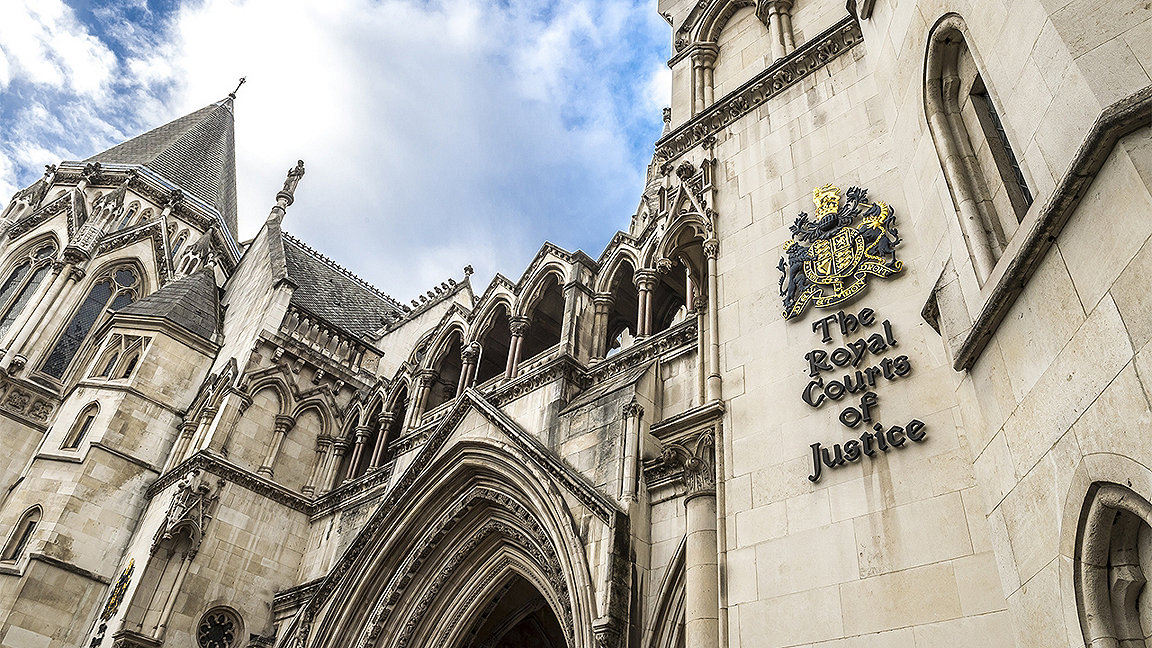
In the recent case Hope Capital v Alexander Reece Thomson [2023] EWHC 2389 (KB), the High Court looked again at how to evaluate the scope of a valuer's duty and recoverable losses resulting from a negligent valuation.
The decision emphasises once more that, following Supreme Court decisions in 2021, it is the purpose of the valuer's opinion or advice that will define the extent of their duty. It also shows that, in evaluating loss in these claims, the courts will in some cases consider a counterfactual approach unhelpful.
Approach of court in Charles B Lawrence
In Hope Capital, the defendant valuer's primary argument relied on the analysis in the Privy Council decision of Charles B Lawrence & Associates v Intercommercial Bank Ltd (Trinidad and Tobago) [2021] UKPC 30.
While in this earlier case there had been a negligent overvaluation, there was also a serious defect in title. In short, the bank had instructed CBL to value land for the purposes of a proposed mortgage to a borrower.
The land was owned by another company which was to be the guarantor of the loan and offer up the land as security. However, the defect in title meant that the lender's security was worthless in any event.
When it came to assessing damages in Charles B Lawrence, the Privy Council held that the loss suffered due to the defective title was outside the scope of the valuer's duty of care.
The correct measure of damages was therefore the loan sum less the land's true value at the date of the loan assuming there was good title, minus a deduction to reflect the claimant's contributory negligence.
In reaching its decision, the Privy Council considered the counterfactual test set out by Lord Hoffman in South Australia Asset Management Corp v York Montague Ltd [1996] UKHL 10.
The test – in its current formulation – was summarised as follows: 'would the claimant still have suffered the same loss if the information or advice had been true? If the answer is 'yes', the scope of the duty does not extend to the recovery of that loss. If the answer is 'no', the scope of the duty does extend to the recovery of that loss'.
The Privy Council also focused on the Supreme Court judgments in Manchester Building Society v Grant Thornton UK LLP [2021] UKSC 20 and Meadows v Khan [2021] UKSC 21, which emphasised that the purpose of advice or information given was central in determining the scope of the duty of care assumed by a professional adviser.
Lord Burrows and Lady Rose of the Privy Council referred to 'the point made by the Supreme Court that the counterfactual is of second-order importance as regards establishing the scope of the duty and is a helpful cross-check of that scope in most but not all cases'. On this point, they then concluded that 'this is one of the cases where it is unhelpful'.
Parties contest scope of valuer's duty
The dispute in Hope Capital concerned a negligent valuation by the defendant – the valuer – in February 2018 of a grade II listed 15th-century property in Surrey.
This was a secured lending valuation in respect of a short-term bridging loan for around £2.215m, with a low loan-to-value ratio, as had been the case in Charles B Lawrence.
The borrower had the benefit of a long leasehold interest over the property and the National Trust held the freehold. The valuer valued the property at £4m, which was a negligent overvaluation, with the true open market valuation being £2.75m.
The 180-day value, i.e. the value of the property on the basis it has a restricted sale period of 180 days – was £2.475m and this was also found to have been the 180-day value as at the date of default.
The borrower defaulted on the loan and receivers took possession of the property in late 2018. Several issues then arose, including a dispute with the National Trust relating to irresponsible and unauthorised renovation works by the borrower.
This led to a delay in the receivers selling the asset. The property was eventually sold in October 2020 for £1.4m, in a market adversely affected by the COVID-19 pandemic. The valuer did not dispute that it was a 'no transaction' case, i.e. one where the loan would not have been advanced at all had the valuer given a non-negligent valuation.
The lender, Hope Capital, asserted that it had suffered a loss in capital and contractual interest on the loan. It also claimed for a loss of profits that it alleged would have been realised by use of the lost capital in other successful bridging loans.
However, it did accept in its claim that, pursuant to the principles laid down in South Australia Asset Management Corp (SAAMCO), its recoverable loss was capped at £2.05m by reference to the difference between the £4m valuation and the true 180-day value.
The valuer accepted that it had acted in breach of duty, i.e. the negligent valuation, but alleged that the total actionable loss was zero. This was on the basis that the 180-day value as at the date of default remained the same as it had been at the date of valuation. It was argued that this value exceeded the amount of the loan and no loss had therefore been caused.
The valuer argued that the actual cause of loss of value at the date of the borrower's default and the sale in 2020 was instead the dispute between the borrower and the National Trust and the impact of the pandemic – neither of which, it alleged, fell within the scope of its duty.
Factors beyond valuation held to cause loss
Mr Justice Constable considered the relevant case law to answer the fact-sensitive question of whether the valuer had assumed responsibility for the risk of the whole transaction or just part of it. He did so to determine the purpose for which the advice or information was provided.
The court held that normally, the valuation was only one of a number of factors in the lending decision, and that cases in which a valuer is liable for all foreseeable consequences of a commercial transaction based on negligent advice are likely to be rare.
It found that:
- the valuation in this case was a key part of the decision to lend, but was not the only consideration; notwithstanding that in the context of a bridging loan the importance of the valuation might be elevated
- the purpose of the valuation was to protect the lender in relation to the value of the security only, and not all other foreseeable risks attendant on entering into the transaction.
In terms of assessing loss, the court concluded that:
- the factual reason that the value of security was not realised within 180 days of the default was due to the borrower's conduct; that is, its dispute with the National Trust
- had it not been for this conduct and the subsequent effects of the pandemic on the market, the claimant would not have suffered any loss of capital advanced
- by analogy with Charles B Lawrence, the loss caused by the breach of the valuer's duty was therefore nil.
Case suggests move away from SAAMCO
Hope Capital confirms that the courts are moving away from the SAAMCO analysis of negligent valuation claims. Instead, there is now more focus on the scope of duty in a particular case, based on the purpose for which the valuation was provided. This is in line with the Supreme Court decisions in Manchester Building Society and Meadows.
This decision is positive for valuers and their professional indemnity insurers as in many cases, it will be arguable that changes in valuation will be attributable to changes in market conditions or other external factors for which the valuer is not responsible.
Furthermore, the Hope Capital decision makes it clear that – regardless of the fact that a valuation may have been critical to a decision to lend – the valuer is not necessarily liable for all of the financial consequences of a default on the loan, even in a no-transaction case. This will be an unwelcome finding for bridging lenders.
It is also notable in Hope Capital that, had it been relevant, the court would have applied a significant deduction for the lender's contributory negligence, assessed at 50%.
The court was in particular critical of the lender's 'acts of imprudence' which included disregarding the ascertainable dishonesty in the loan application and the borrower's lack of a clear exit strategy at the end of the loan term.
The lender's expert accepted that the unclear exit strategy may have given rise to a concern for a lender and that to lend to an applicant who had been dishonest in their application would be imprudent.
'This decision is positive for valuers and their professional indemnity insurers'
High Court denies permission to appeal
In December, the High Court rejected the lender's application for permission to appeal. Of the three grounds put forward by Hope Capital, the one that pertains to this article contended that Mr Justice Constable had erred in fact and law in concluding that as the claimant suffered no actionable loss in relation to:
- the analysis of the scope of duty
- the application of the scope of duty to the factual circumstances; that is, the nexus between the scope of duty and losses claimed.
On this point, it was held that it was not discernible from Hope's draft grounds of appeal how it was said that the losses caused by the borrower coupled with the effects of the pandemic were to be regarded as losses with any proper nexus with the valuer's scope of duty.
In denying the application for permission to appeal, the court held that 'it is not ... reasonably arguable that the judgment involved anything other than an orthodox view of the law [after] SAAMCO applied to the facts. For related reasons, it is not reasonably arguable that it was wrong to follow the rationale of the Privy Council in Charles B Lawrence'.
While Hope Capital is a welcome decision for valuers and a thorn in the side for bridging lenders, how deep that wound might be is yet to be seen. The claimant is likely to have presented an application for permission to appeal to the Court of Appeal – we will await developments with interest.
Tom White is a partner at Clyde & Co
Contact Tom: Email
Robin Cox is a senior associate at Clyde & Co
Contact Robin: Email
Cathy Moore is a knowledge lawyer at Clyde & Co
Contact Cathy: Email
Related competencies include: Valuation

